Accessible Healthcare for Rural, Indigenous Communities
Building a bridge between CU College of Nursing and Fort Lewis College
September 2022
It’s no question that nurses make the extraordinary possible. They are the backbone of the healthcare system, working to improve the health of our communities every day through compassion, leadership and grit. But there are severe gaps in regional healthcare services and an immediate need for diversification in the nursing profession – a need that has been persistent for over a decade.
Historically, a lack of training facilities and teaching personnel has led to nursing shortages in rural areas. According to the Georgetown University Center on Education and the Workforce, Colorado had the fourth-lowest concentration of nursing professionals by state in the U.S. in 2020. What if a new nursing program could change all that?
Together as educational partners, the University of Colorado College of Nursing (CU Nursing) and Fort Lewis College (FLC) are turning that “what if?” into a reality. The establishment of the Karen Zink Family Fund for Nursing Education Leadership at CU Nursing was made possible by a generous $1 million commitment from Karen Zink, MS ’87, and her husband Gerald “Jerry” Zink. This gift launched an innovative alliance between CU Nursing and FLC, establishing a four-year undergraduate degree in nursing and creating the CU Nursing Fort Lewis College Collaborative (the Collaborative).
The Collaborative is the first of its kind in Colorado, bringing the state's flagship medical institute of higher education to Fort Lewis's rural and Indigenous-serving campus in Southwest Colorado. The unique partnership connects CU Nursing's leading-edge healthcare education and research to the inclusive teaching practices of FLC, a Native-American serving institution that is the most diverse public liberal arts college in the nation.
We are honored to forge this partnership with an esteemed school in a part of the state offering such tremendous opportunity for training the future healthcare workforce of Colorado. By partnering with Fort Lewis College, we are bringing world-class healthcare education into a highly respected liberal arts environment, optimizing the best of both environments to deliver a top-tier nursing education.”
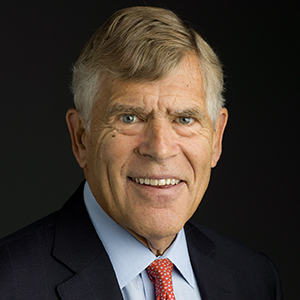
Donald M. Elliman
Chancellor“We are thrilled for this partnership with CU Anschutz because we know it will create transformative change in the field of nursing,” said Cheryl Nixon, PhD, Fort Lewis College provost and vice president of academic affairs. “We’re bringing the medical expertise of CU Nursing out to our southwestern region to provide a quality education that is also culturally sensitive to the rural and Indigenous communities Fort Lewis serves. This is a truly innovative cross-Colorado higher education collaboration. ”
How did this revolutionary program come to be? Like many great ideas, it started with a spark.
Living For the "What If?" Moments
Nursing is one of those professions that often begins with a calling. For Karen Zink, it was all in the family. Inspired by her mother, Marilyn Mason Short, a nursing leader who helped set up the first emergency department at Mercy Hospital in Durango, Colorado, Zink also started her medical education at Mercy. She went on to earn her bachelor of science in nursing from Loretto Heights in Denver and then her master’s degree at the University of Colorado College of Nursing. Her daughter, Heidi, who is also a CU alumna, continues the family tradition working as a certified nurse-midwife with Southwest Midwives.
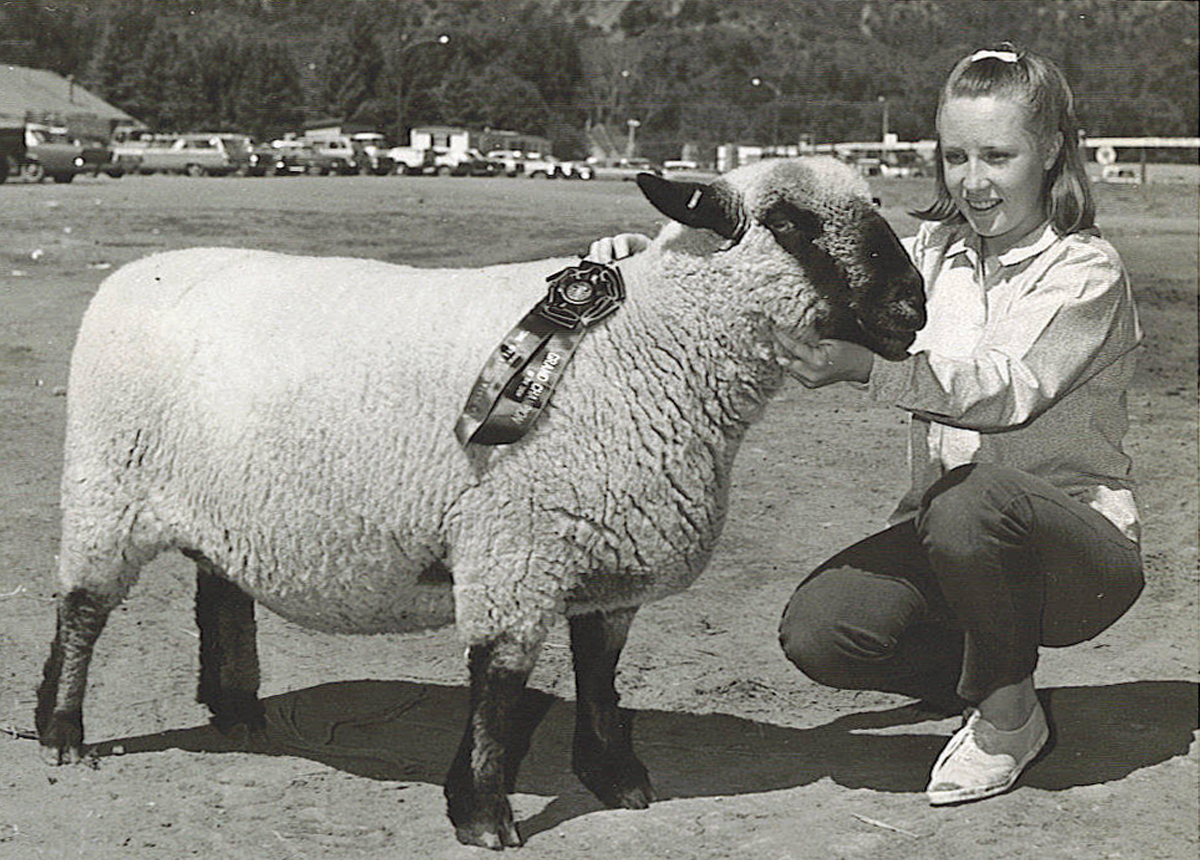
Zink’s passion for community health nursing and public health led to her becoming a certified women’s health nurse practitioner. She founded the Durango-based Southwest Women’s Health Associates (SWHA), one of the only clinics in the area offering primary and preventive care for women as well as gynecological care. Not one to shy away from a challenge, Zink worked with the Colorado Nurses Association to bring full practice authority to nurse practitioners and served on congressional committees to ensure that nurse practitioners (once appropriately licensed) have the freedom to provide healthcare services independently. A longtime advocate for nurses and the nursing profession, Zink’s nursing career now spans 50 years.
“I jumped into nursing with both feet,” she said. “I jumped into practice. I jumped into organizations. I jumped into nursing leadership and the legislative process. I just jumped in. I guess you could say I have an independent spirit and a reputation of being a bit of a rabble-rouser.”
Nursing wasn’t the only passion Zink shared with her mother. Giving back was ingrained in their family. At age nine she joined 4-H and saw firsthand the value of community service. Born and raised in Durango, Zink has deep roots in the southwestern part of the state and understands that many rural Coloradans lack ready access to a clinician, and that healthcare resources available to Indigenous communities are limited.
What if there were more nurses of color, more of those who have aptitude but need an opportunity, more men and men of color getting to the top in the field, more communities impacted by the good of it all, more nurses prepared to achieve graduate degrees?”
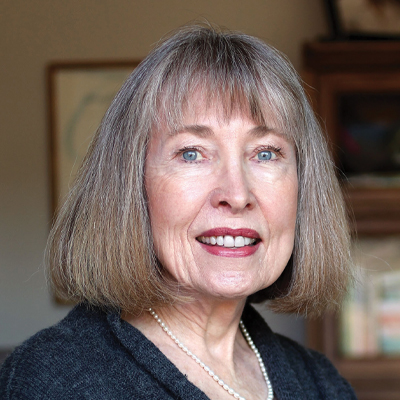
Karen Zink, MS
Class of ‘87Her “what if?” moment came to fruition when FLC approached her with creating a baccalaureate nursing program with a focus on rural and Indigenous health. After an initial meeting with FLC to discuss the philanthropic funding opportunity, Zink recommended they work with an experienced academic partner like CU Nursing for its nursing expertise and curriculum-building acumen. Together, both institutions would meet a critical need in southwestern Colorado and the Four Corners communities, while also responding to the nationwide shortage of nursing professionals.
By locating the new program at the premier four-year institution of the Four Corners, CU Nursing and FLC are laying the groundwork for local students to earn a bachelor’s degree and then return to their home communities with healthcare expertise and a cultural understanding of rural and underserved areas in need.
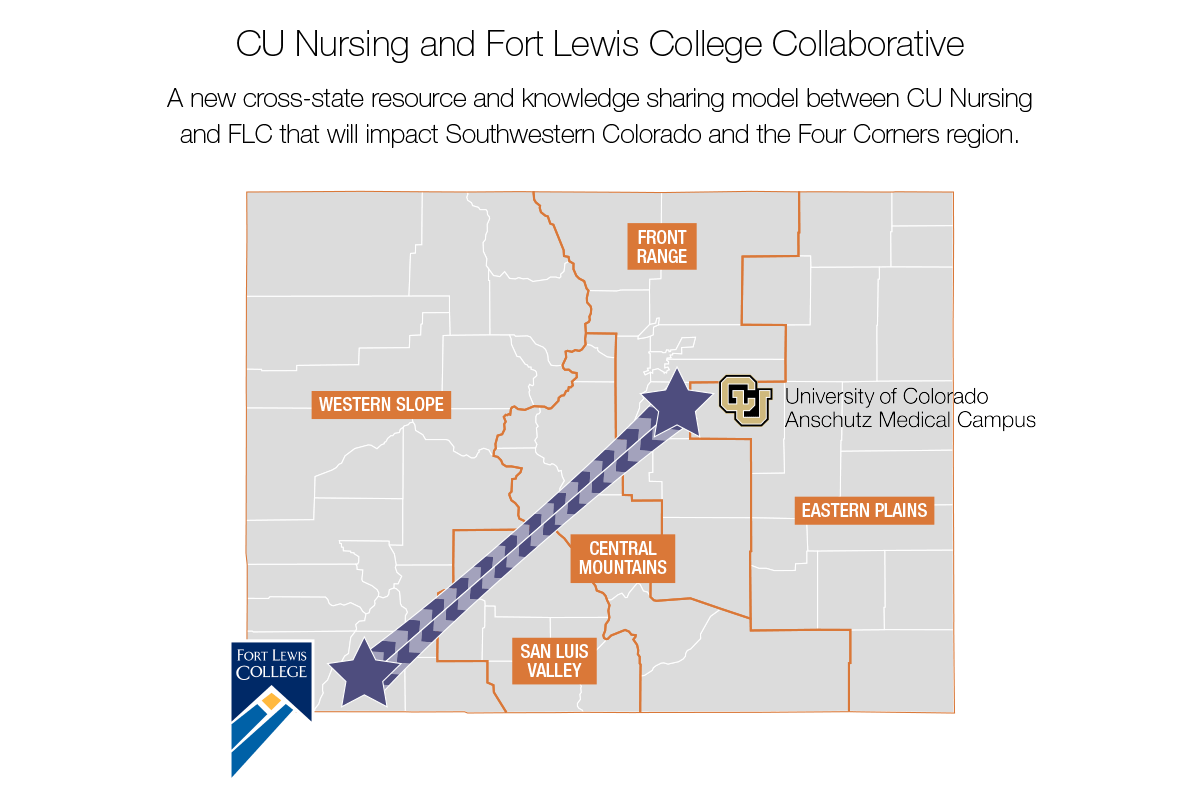
“It’s not so much about what this program is going to do for our institutions but what it's going to do for the community,” said Amy Barton, PhD, RN, FAAN, ANEF, senior associate dean for faculty and students at CU Nursing. “We will be offering the traditional CU Nursing program at the FLC campus, with adaptations focused on rural and Indigenous health. This will create a pathway for the amazing students at FLC to get a high-quality nursing education and immediately serve their community.”
Zink’s advocacy for nurses and the nursing profession, coupled with her generous philanthropic spirit, was the catalyst for moving the partnership forward. “My husband, Jerry, and I were proud to give in support of this effort,” she said. “We have a high level of trust in our partners at CU and FLC to do the right thing.”
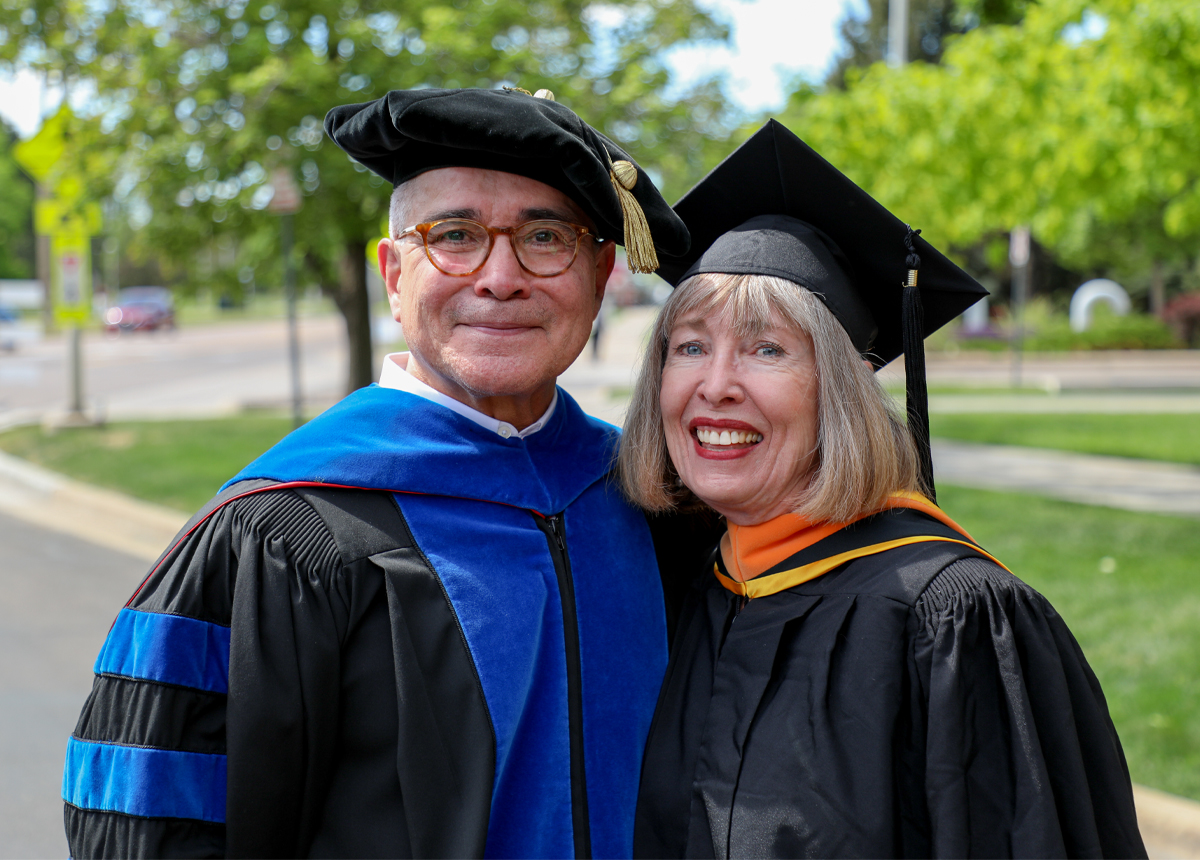
Zink also formed a close new friendship with Elias Provencio-Vasquez, PhD, RN, FAAN, FAANP, dean of CU Nursing, who referred to her as “lucky la chispa,” which translates to “the lucky spark” in English. It may have been a tall order, but it was one Zink was born to take on.
A New Path Forward
The Collaborative will welcome its first cohort of 24 nursing students onto the FLC campus in the fall of 2023. The Durango-based program will blend FLC’s liberal arts core with the CU Nursing curriculum, ensuring that students build a foundation of creative and critical thinking. The program will also infuse culturally sensitive healing practices uniquely aligned with rural, Indigenous healthcare perspectives throughout the entirety of the four-year degree plan.
“We know we will learn so much from our Indigenous communities and our Indigenous students on incorporating different types of healing, different types of community-based practice, and different types of values around what it means to create a healthy community,” said Nixon. “We're looking forward to incorporating those understandings into nursing practices such as our simulation labs and our telehealth training.”
The program will create a comprehensive network of support to maximize students’ success through scholarships, mentorships, peer-to-peer programs, and a curriculum focused on Native American health and primary health. Funding also supports a nursing program director who will build a bridge between CU Nursing and FLC through collaboration with leadership, faculty and staff at both institutions.
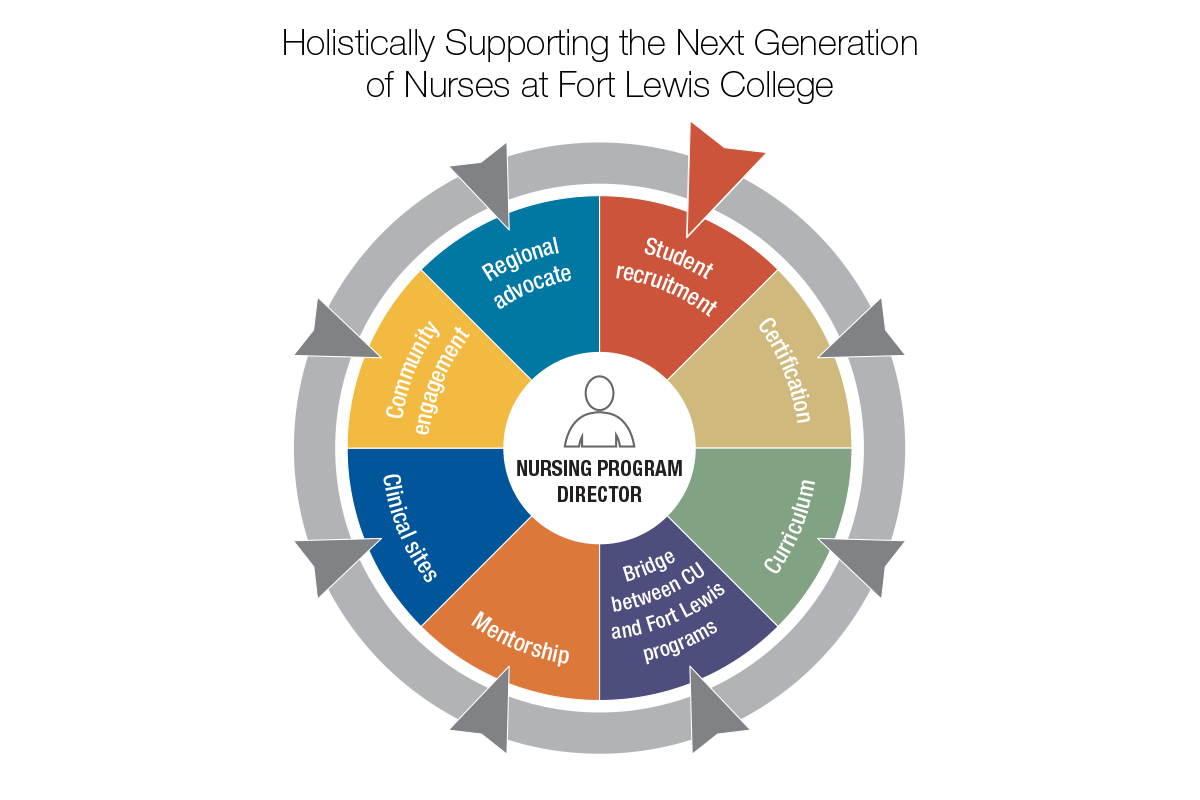
Students will complete their four-year degree on the FLC campus and receive their final degree from CU. The degrees will be jointly branded and list the BS degree awarded from CU College of Nursing, referencing the Rural & Indigenous Health Program from FLC.
“This program will provide opportunities to Fort Lewis students who previously did not have access,” said Kristi Rodriguez, director of admissions and student affairs for CU Nursing. “Students won’t have to leave their homes and communities to become a nurse; they’ll be able to practice and do their clinical experience right in their own backyard.”
It only takes one person to start a movement, and that’s what Karen Zink has manifested with her philanthropic leadership. This revolutionary venture has the potential to ripple out beyond the Southwest and truly make a difference for the future of nursing, changing the landscape of how healthcare can and should look.
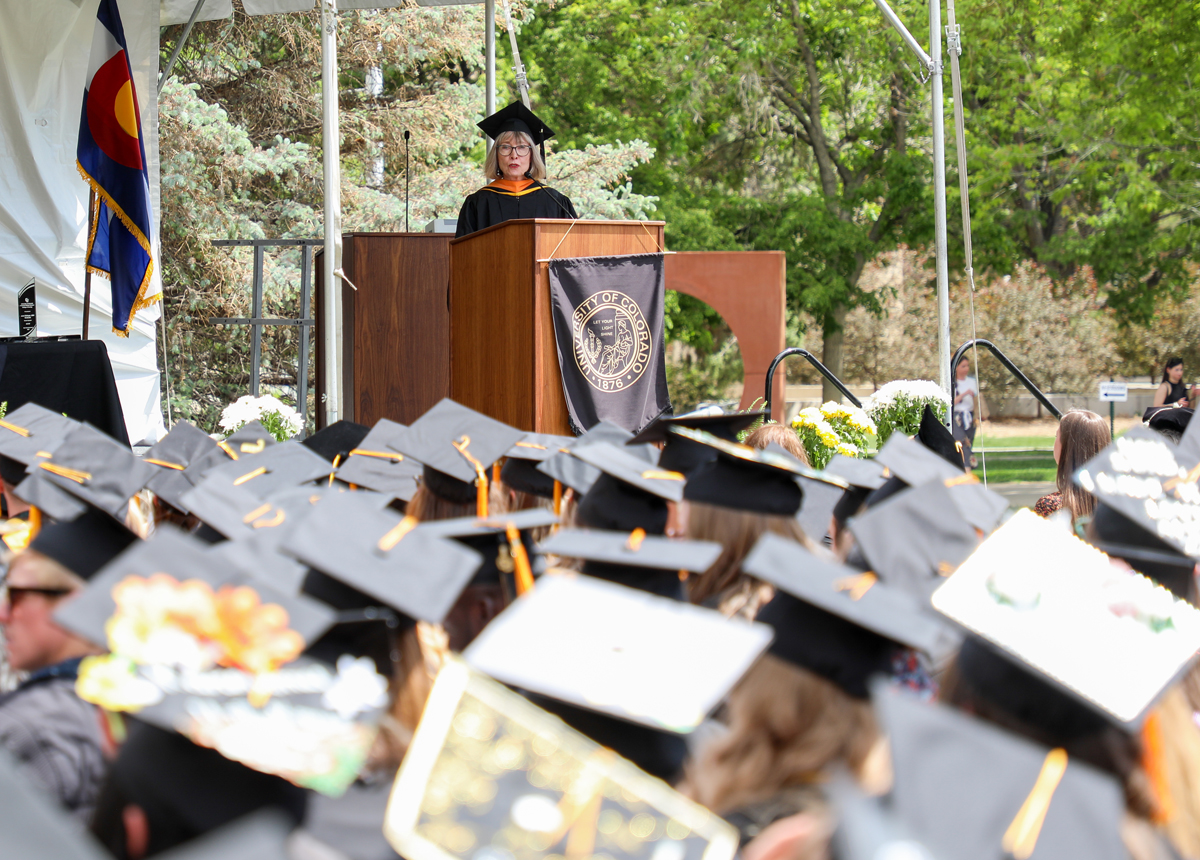
CU Anschutz Fund for Excellence
To provide a flexible funding source to address CU Anschutz's most promising priorities in support of research, education and patient care.